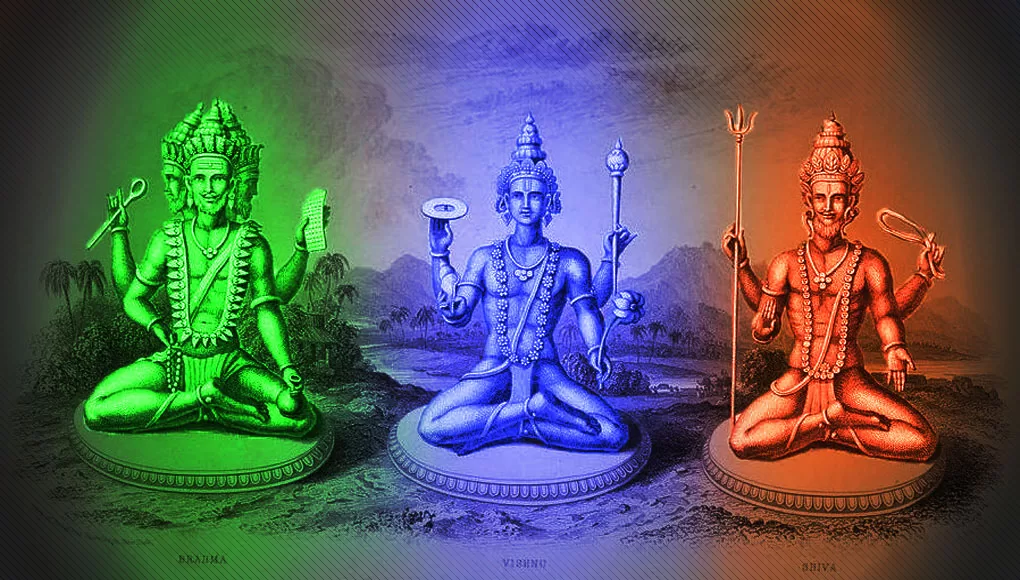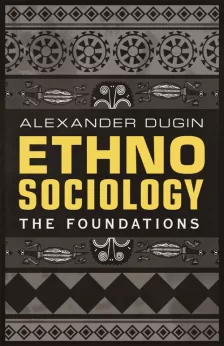For whomever seeks to form an idea of divinity and of its relation with the real world, two paths appear, one of which we might call the deductive, and the other inductive. Those who take the first path – as every believer habitually does – depart from a certain a priori concept of divinity, which conforms to their faith, and upon the basis of which they attempt to explain the created world. Along the second path, or the inductive path, on the other hand, after forming for oneself a realistic and comprehensive idea of the world, one is hard pressed to represent to oneself what god might have been its creator or author.
Along the first path, difficulties of some significance arise when one assumes the idea of a personal God with singularly positive, luminous, and, so to speak, ‘moral’ characteristics. Indeed, evil can be observed in the world and in existence; destructive processes and dark forces act in it, and so one must ask oneself how all of this can be reconciled with such an idea of God. This conciliation is the problem of a branch of theology known as ‘theodicy’: in the framework of Christianity, we can state that this problem has never been resolved in a satisfying way.
Already beginning from the first centuries of Christianity, the difficulties here were brought into relief in a rather crude way by Marcion, in the form of a dilemma. On the one hand, Marcion considers the world according to its above-mentioned dark and problematic aspects; on the other hand, he posits a God who is supposed to be wise, good and omnipotent. In light of this, Marcion reasons as follows: if the world is what it is (and is not the ‘best of all possible worlds’, as the theodicy of Leibniz attempted to demonstrate), God might be good but not omnipotent and wise; or else he will be omnipotent but not good and wise; or else he will be wise bot not omnipotent and good. Marcion believed that he had found a way of coping with this difficulty by admitting, in a certain sense, two divinities: the first is the ‘Demiurge’, an inferior creator god who is responsible for being, for creation, such as it is; the other is the Higher God, the transcendent, truly luminous god.
For Marcion, the first God was the god of the Old Testament (who in truth does not always reveal sympathetic traits); the second, the God of love and grace, the god revealed by the New Testament.
To join these two theses together, Marcion spared no pains in revealing those aspects of reality and of existence which, in his opinion, do not indicate the supreme wisdom of a god; his work was not wanting even in a a piquant note when he says that all one must do is consider the ‘ridiculous gymnastics’ (sic) necessary for procreation, if one is to be convinced that creation is not the work of a truly wise god. (Perhaps, had he known them, Marcion would have adopted the words of that famous Greek orator who asked the gods, and in particular Zeus, why, having decided that men must reproduce, he had dreamed up nothing better than woman for the task).
But there is another way of redimensioning the concept of divinity, by commencing from the reality of the world. In one of the essays contained in the volume recently published in Italian translation by Edizioni Mediterranee and entitled Mefistofele e l’androgino,1 the historian of religion, Mircea Eliade, indicates the recurrence, in various civilizations, of what we might call a two-faced conception of divinity, such as might correspond to a coincidentia oppositorum:2 a God who contains opposites in himself, who is luminous and who is tenebrous, creative and destructive, good and evil – and therefore, if you please, as much God in the strict traditional sense as anti-God, the devil, Mephistopheles or, as it is sometimes referred to, the ‘other half’.
This conception differs from the view proper to the ancient dualistic Persian religion (the Iranic religion called Mazdeism), which held fast at the opposition of two originating principles (the God of light against Ahriman), which are assumed to be coexistent but in a state of continual tension and struggle. With the aforementioned conception, on the other hand, one goes beyond this cosmic opposition; one imagines a unity which subsumes this unity and which transcends it. Such a conception, which is certainly disconcerting for the many, frequently has a place in the world of the Mysteries and initiation, but here it held to be the last esoteric mystery, which was not to be revealed to the profane. It is also reflected, moreover, in the views of the mystic English poet William Blake, who spoke of the ‘marriage of heaven and hell’.
It is evident that, commencing from such an idea of divinity and of the Supreme Principle, the problem of explaining the world and existence in all its antitheses disperses; nor is there a need to postulate, with Marcion, a subordinate deity, who is singly responsible for creation, and who was, so to speak, not particularly good at his job. But perhaps the most balanced view is presented to us by the so-called Trimurti of Hinduism.
Following this well-known view, we should consider three aspects of the Supreme Principle, personified by as many Gods: the creative aspect (Brahmin), the aspect which conserves existence and order (Vishnu), and the destructive aspect (‘black’, Shiva). With this triad, it is possible to attempt a global interpretation of the universe and of life, with nothing left out.
In this context, it is perhaps possible to trace the way in which the Idea of Satan emerged in the sphere of the Christian faith. It has been characteristic of Christianity to attribute to divinity only the positive, luminous, ‘moral’ qualities. Given this polarization, everything which has a different character and which, according to the aforementioned metaphysical and transcendent conception of divinity, was absorbed into a higher, impenetrable unity, had to assume the traits of a principle exclusively negative in and of itself – not merely the ‘other half’ – in the person precisely of the devil, of Satan, Lucifer or such like. One returns thereby to the ancient dualistic view, only now in a moralizing tone.
Naturally, the concept of the ‘devil’ includes something more as well. On the one hand, the devil is the wicked, the tempter. To attempt to explain the possibility of the existence of such a being in the cosmic economy of the divine, in its proper plane, some have sought to transform him into an instrument of the divine itself. Thus Goethe spoke of a force which ever wants the evil, but which in the end, despite itself, produces the good. This however does not exclude the possibility that, leaving aside the ‘happy ending’,3 the desire for evil characterizes the Christian Satan or Lucifer, according to his aspect of ‘contester’, opposer, the rebel par excellence, the rebel by profession and vocation – indeed, to such an extent that one can almost make of him the illustrious patron saint of all those frantic, if capricious and quite profane, tendencies which are today the fashion.
Precisely this aspect comes into relief in the delightful novel La révolte des Anges by Anatole France. The angels, fallen head-first and routed with Lucifer, descend to earth, where they proceed to reorganize in order to attempt their vindication, employing everything that both science and magic have to offer them. Everything is so well arranged that there seem to be no doubts about the favourable result of the venture. Save that Lucifer, the eve before the great day, has a dream: he dreams victory, dreams that the old God has been dethroned, that he himself has taken the empty place. But in feeling himself become the omnipotent God of Light, without rivals, Lucifer is overcome by such a sense of boredom that, upon awakening, he immediately countermands his orders and sends everything to the dogs. He prefers to remain the eternal rebel.
References
1This title was translated into English as Mephistopheles and the Androgyne: Studies in Religious Myth and Symbol (Sheed and Ward, 1965). So far as the editor can work out, it is presently out of print.
2Latin: ‘coincidence of opposites’, meaning the simultaneous presence in one and the same thing of contrary or contradictory traits, aspects, qualities, elements etc.
3In the Italian, Evola has ‘happy end’ in English.










The problem of evil will continue to haunt Christianity and every wanna-be „Trad“ Christian. Evola‘s presentation is spot-on.
However, it lacks an exposition of the problem from the Orthodox Christian and from the Jewish point of view.
Reading Gershom Sholem „Major Trends in Jewish Mysticism“, it seems that the Kabbalists approach the Gnostic conception with God and Demiurge, where here the Demiurge and his creation are the goyim and only the Jews harbor the true sparks of the creator. Therefore the Jews are the only force for good in an evil world.
Anyways, the Jewish POV seems to be derivative, also the kabbalistic creation myth seems to be heavily influenced by Tantrism (Shekinah of God = Shakti).
Alexander Dugin has an exposition of the problem of evil online at 4pt.su which I recommend additionally to Evola‘s piece. I am uncertain whether his expositions portray the Orthodox Christian POV.
In summary, I submit that ALL abrahamic faiths fail to properly address the problem of Evil. The only full expositions of the problem may be found in the currents that Evola himself expounded: Buddhism, Tantrism, Vedanta, that is the hyperborean worldview.
I wonder if I might push the matter a bit, Jürgen, regarding the superiority which you have claimed for the Eastern currents in this matter. The Eastern religions have been accused by many of nihilism; it is of course easy to show how most of these charges are all-too-superficial, how they falls apart the moment one digs a little deeper into those currents to reveal their true complexity and metaphysical breadth. But I wonder if a deeper argument might be made on behalf of those who, like Nietzsche, perceive a strain of nihilism in the East.
Following Evola’s presentation of the Trimurti above, the argument could be framed thus: the reduction of good and evil to the threefold and eternally balanced Trimurti forces us to acknowledge that good and evil as most men understand them are illusory. Man’s life exists within this illusion, his politics unfold on account of it, his actions are based upon it, his decisions made, sometimes agonizingly, on the ground of it. His life cannot be imagined in the absence of the illusion: when this illusion vanishes, so does the very atmosphere which sustains human existence. Should tomorrow the entire world be blotted out by a nuclear holocaust, this would mean nothing from the point of view of cosmic economy. The wise man therefore would do best to withdraw, to attain distance and detachment, and to retract his will from action in the world around him, knowledgeable as he is that this will, in its particular expressions, does not and cannot reflect the grand neutrality of the universe. Or put otherwise, he realizes that whatever he does and whatever he chooses, if viewed in the light of knowledge, is arbitrary and without basis; he might as well choose to destroy what he finds around himself and thus to join himself to Shiva, as to create something new and join himself to Brahman, as to conserve and join himself to Vishnu. On the cosmic scale, the level of truth, it does not matter what he chooses to do, or if he rather chooses precisely the opposite thing. On what basis then will he choose anything at all? And can we not call this confusion and hollowness itself, nihilism?
I am not certain I am convinced by this argument, but I see something compelling in it. What would you say to it, Jürgen?
John Bruce, I have confronted myself with your argument and have found an answer that I wholeheartedly accept.
The problem as you present it arises in humans who suffer from a ratio without intuitio. If the rationalistic faculty in man recursively thinks in it’s own terms and about itself, then it will of course come to the conclusion that the eastern conception is defective and nihilist, after all it does not give guidance.
The first and glaring error of your presentation is the unspoken assumption that man’s ratio is able to judge God’s designs – God is greater, therefore he “works in mysterious ways”. Man is simply incapable of judging the designs of our creator.
Secondly, Guenon’s and Evola’s perspective was never at all rationalistic. Practically that meant that they referred to sources of knowledge and wisdom which are beyond ratio, supra-rational. This is a point which is most clearly and repeatedly spelled out in both their writings which for some telling reason gets intentionally glossed over the more widely read they are.
Man in Kali Yuga can only learn to access these sources of wisdom by meditative practice. People of my and perhaps your persuasion will find guidance in either The Yoga of Power or the Doctrine of Awakening. I personally use a smartphone and muse device to enable my meditative practice.
When you are able to access these supra-rational sources, you develop an intuition on how to act in a certain situation or regarding certain circumstances. In Hinduism there is a quite concrete teaching on personal equations which makes one man do that thing and another man another thing. The difference between relying on that supra-rational source and mere randomness is subjectively felt as the former “feels” enlightened while the latter indeed feels “darkened” or “hazy”.
A side-note on Evola’s and Guenon’s dispute on kshatriya vs. brahmin and why I firmly support Evola: Action is NOT measured by outer consequence, but by inner disposition. As we can read in the Bhagavad-Gita, the enlightened man will be enlightened regardless of his actions. Your actions do not define who you are, but you act by who you are.
An ascetic monk will life like an ascetic monk, for example Guenon. A warrior will live like a warrior. Evola was some kind of warrior priest. The consequences of this world view hit at the heart of egalitarianism – our souls are indeed born different there is an inherent hierarchy. Kings are born kings.
In the end a last comment on the abrahamic degradation: These religions proclaim good and evil because they are a sign of the latter days in which the heart of humanity has hardened and they cannot hear God’s voice anymore. They lack the means to intuit the proper conduct for their own being which is why they need a fundamentalist guidance and rulebook. This of course leads to Judaic legalism. The people for whom these conceptions have been devised lack higher faculties.
Now, that was really interesting to read. Still, the question always left unanswered is: why did God create the Devil? Pondering it, is really intriguing.
Agreed entirely, Twin Ruler. Gurdjieff makes the rather cunning suggestion that God is subject to the ravishes of time, and that without his continual vigilance and will to sustain and recreate himself, would eventually perish. Thus God creates the Devil as a means of keeping himself eternally ‘awake’ – a constant and self-renewing threat against which he must ever willfully exert himself. I find this a rather tempting theodicy.
Nonetheless, I suspect that this was but a sly moral exhortation on Gurdjieff’s part – an explanation more for the idea of sin than for the Devil, and a reminder to his students to keep themselves from falling asleep – but it is interesting to see the ways in which it mirrors, on the metaphysical level, the Trimurti proposed by Hinduism. Gurdjieff’s philosophy – if one dares to call it such – includes a kind of metaphysical numerology, in which the number three figures prominently, and in which the three forces – the creative, the conservative and the destructive – are manifest as the prerequisite forces for any kind of progress, be it personal or cosmic.
Thank you, I am glad you came up with that idea. It is like how new crises have to come up, to rationalize the existence of the US Military Industrial Complex. However one may feel about either the Communists or the Nazis, and I know many dislike them for obvious reasons, they did serve as useful external scapegoats for Uncle Sam, at least while they lasted. I am sure it works the same way, in principle!
Intriguingly, the Freemasons claim to secretly believe that God and the Devil are the same Deity, or so Texe Marrs claimed. This, of course, would reconcile the two beliefs that Christians have about Jews: that they are BOTH The Chosen People AND The Children of The Devil. Would also explain why Jews termed Jesus Christ, the Devil! I think I am really onto something here.